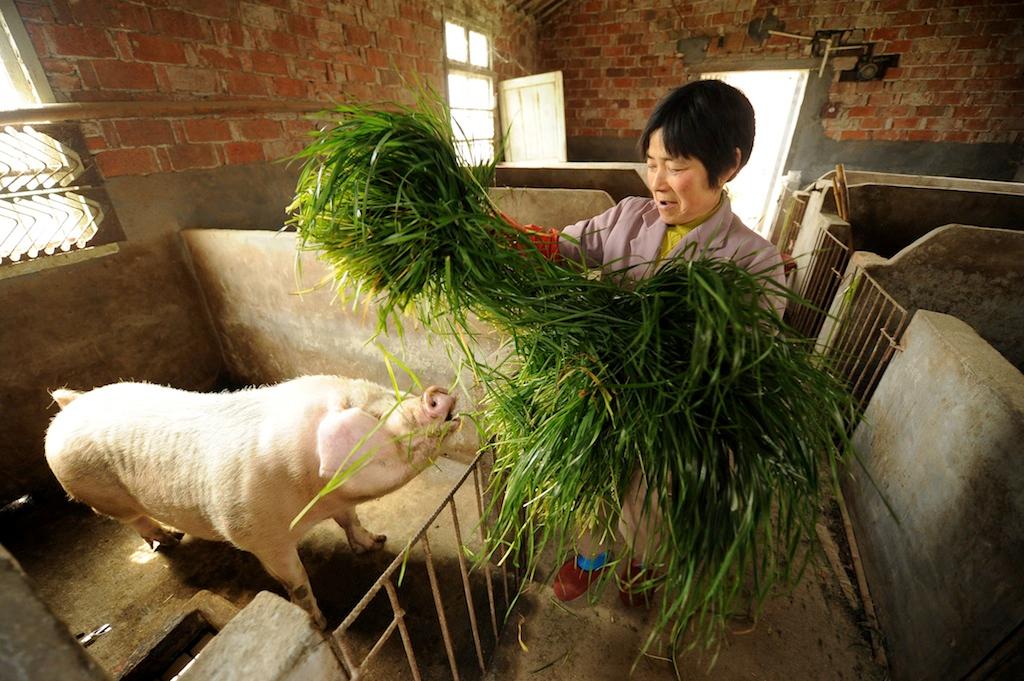Chinese leaders pledge ‘more property rights’ for farmers
Chinese farmers have been left behind after 30 years of rapid economic growth, the China Daily said last week, underscoring the importance of land reforms.
Among the dozens of reforms unveiled by the Chinese Communist Party last week was a pledge to give farmers greater property rights, which could – potentially – enable rural dwellers to profit from the country’s booming real estate market like their urban cousins.
No details were forthcoming and China observers urged caution when assessing the significance of the announcement.
More from GlobalPost: China reforms: 'An important step, but not the end of the road'
Urban land in China is owned by the state, while rural land is under collective ownership overseen by village officials. Rural dwellers are allowed to farm and build houses on their plots, but they don't have the right to transfer, sell, sublet or mortgage them.
It's a different story in urban areas where a flourishing market for long-term leased property – 70 years for residential properties – has been allowed to evolve.
The reforms announced by Chinese leaders after a four-day meeting in Beijing called for the establishment of an “integrated urban-rural construction land market” and “more property rights” for rural dwellers.
China experts warned the proposed reforms were not likely to usher in individual property rights for farmers and they noted that similar talk five years ago had failed to go anywhere, The Financial Times reported.
More from GlobalPost: China's Third Party Plenum — a masterpiece of vagueness
But there does appear to be political will for new land rules and it could come from small-scale experiments such as the one being conducted in the eastern province of Anhui.
The Anhui provincial government plans to allow the rights to publicly owned plots of land to be transferred, sublet, mortgaged or turned into business shares in 20 of its rural counties and districts, the Associated Press reported.
The document, published last week, was short on details, but such land reforms have been endorsed by the state-owned China Daily newspaper, which noted farmers have been left behind after 30 years of rapid economic growth.
“Fundamentally transforming the land use system to their benefit has become essential if the government is to realize its goals of common prosperity and national revival,” the English-language newspaper said in an editorial published on Thursday.
More from GlobalPost: In China, the confession will be televised. In fact, it already is
Under the current system, farmers are compensated when their land is expropriated by local government officials for commercial, industrial or residential development.
But the method for calculating the amount of compensation they receive does not reflect the market value of the land, and this has become a growing source of unrest across China as vast tracks of farmland are swallowed up by the rapidly urbanizing population.
Farmers are understandably outraged when local governments pay them a pittance for their land and then pocket huge profits when they sell the same plot to developers at significantly higher prices.
That could change if the market were able to set the prices. However, local governments — which have benefited handsomely from land requisitions — are likely to put up strong resistance to such reforms.
